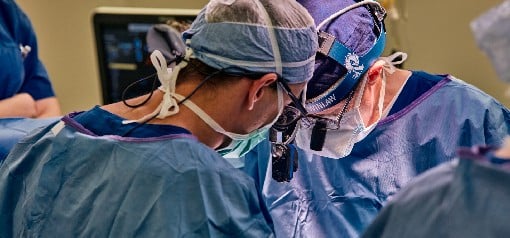
What is a Pediatric Gastroenterologist?
Medically reviewed by Natalie Hoffman, MD
Children with disorders that affect digestion and nutrition are often referred to the pediatric gastroenterology division. Learn more about pediatric gastroenterologist specialists to better understand what conditions they diagnose and treat.
What does a pediatric gastroenterologist specialize in?
Pediatric gastroenterologists specialize in diagnosing and treating disorders of the digestive system in children of all ages, from newborns to teenagers. The digestive system includes the esophagus, stomach, intestines, pancreas, liver, and gallbladder. Functions of the digestive system include processing and utilizing nutrition from the moment food enters the body to when it exits the body as waste. Healthy nutrition and digestion are especially important in pediatrics because they are essential for growth and development.
What does a pediatric gastroenterologist do?
Pediatric gastroenterologists are experts at investigating symptoms that interfere with digestion, nutrient utilization, and growth. These symptoms can include problems eating or swallowing, reflux or regurgitation, nausea, vomiting, abdominal pain, bloating/gas/distention, difficulty stooling, diarrhea, constipation, weight loss, or growth problems.
What kind of training do pediatric gastroenterologists have?
Pediatric gastroenterologists complete at least 4 years of medical school, at least 3 years of general pediatrics training, and at least 3 years of specialized training in digestive, liver, and nutritional disorders. Pediatric gastroenterologists are also trained in performing specialized tests and procedures to investigate the gastrointestinal tract. The most common procedure that pediatric gastroenterologists perform are esophagogastroduodenoscopy and colonoscopy, which use a small camera to look inside the stomach or intestines and to help diagnose certain gastrointestinal disorders.
What conditions do they treat?
Pediatric gastroenterologists diagnose and treat disorders of digestion, nutrition, and growth. Some of the conditions include:
Feeding disorders
- Esophagitis
- Gastroesophageal reflux (GER)
- Infant colic
- Eosinophilic esophagitis
- Achalasia
- Complex disorders of the upper airway and upper digestive tract (aerodigestive disorders)
- Esophageal atresia
- Tracheoesophageal fistula
- Congenital disorders of the esophagus
- Functional dysphagia and dyspepsia
- Functional nausea or vomiting
- Rumination syndrome
- Cyclic vomiting syndrome
- Functional abdominal pain
Food allergies or intolerances
- Cow’s milk protein allergy
- Lactose intolerance
- Eosinophilic gastrointestinal disorders
- Gastroparesis
- Pyloric dysfunction
- Irritable bowel syndrome (IBS)
- Intestinal dysmotility
- Complex nutritional problems requiring specialized tube feeding
- Nutritional and growth problems (including malnutrition, failure to thrive, and obesity)
- Short-bowel syndrome
- Intestinal atresia
- Necrotizing enterocolitis
- Chronic constipation
- Encopresis
- Hirschsprung’s disease
- Chronic intestinal pseudo-obstruction
- Anal achalasia
- Chronic or severe diarrhea
- Inflammatory bowel diseases
- Gastrointestinal polyps, including polyposis syndromes
- Acute and chronic pancreatitis
- Pancreatic insufficiency
- Pancreatic duct strictures, pseudocysts, and necrosis
- Biliary tract disease
- Liver disease
When should your child see a pediatric gastroenterologist?
Your child should see a pediatric gastroenterologist if they are experiencing chronic/severe eating, swallowing, or digestive problems like reflux, regurgitation, nausea, vomiting, abdominal pain, diarrhea, or constipation that do not respond to standard treatments. Pediatric gastroenterologists are experts in discussing symptoms with children and families to determine the need for further evaluation and to recommend treatments to improve symptoms, promote growth and nutrition, and restore patients to health.
Sign up for our Newsletter
Get health tips from our pediatric experts, news about ground-breaking research, and feel-good moments delivered right to your inbox.
Additional Blog Posts

Why Lurie Children's is the Right Choice for Your Child's Heart Transplant
Choosing the right hospital for a child’s heart transplant is one of the most significant decisions a family can make. Our Heart Center team wants to help make this decision easier.
Read More

Pediatric Fractures: A Parental Guide
When a child breaks a bone, it may raise many concerns and questions for caregivers. Learn more in our guide on pediatric fractures for parents.
Read More

Concussion in Toddlers & Babies: Symptoms & Treatment
Toddlers and babies often hit their heads, so it's important to understand the signs of concussion, prevention and treatment.
Read More